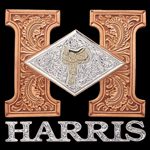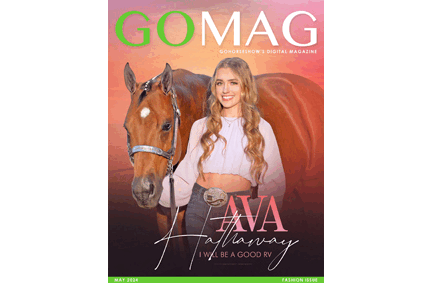Exclusive For GoHorseShow.com
There’s an old saying that says, “There are only two certainties in life: death and taxes.” For many people, this probably captures the essence of estate planning and why estate planning is important. However, estate planning is about so much more
For many horse owners, the farms they have grown up on have been in their family for generations. Others might have started a first generation breeding or training business that they hope to pass on to their children one day. Building a business from the ground up often involves a lot of hard work and perservance, and with that comes a strong emotional attachment to the land and/or business. While most people have a clear idea of how they would like to pass on their valuable assets, very few have a concise plan in place to ensure their wishes are carried out. Remember the old adage, “If you fail to plan, you plan to fail.”
In the next twenty years, as we see the baby boom generation retire and pass away, this country will witness the largest transfer of wealth in history. How is this going to affect the horse industry today? The outcome could be quite drastic if the proper measures aren’t taken to plan for the transfer of property and assets on to the next generation!
The following are some of the most important estate planning issues.
1. It’s important to have a basic estate plan in place regardless of your net worth.
Estate planning is important for anyone who is concerned about who will end up with their assets upon their demise. Everyone should discuss their situation with a professional advisor. There can be additional unique considerations if your taxable estate is worth $2,000,000 or more. Proper estate planning can benefit your heirs by minimizing the taxable portion of your estate. Remember, all of your assets are included in your estate, and adding up the value of your assets can be an eye-opening experience. When you include your home, investments, retirement savings, and the proceeds from life insurance policies you own, you may be surprised at the combined value of your estate.
2. Everybody needs a will.
A will tells the world exactly where you want your assets distributed when you die. A will also allows you to appoint a guardian to take care of your minor children. Make sure to name an alternative guardian in case the primary guardian is unable to to fulfull his/her responsibility. Dying without a will – also known as dying “intestate” – can be costly to your heirs and leaves you no say over who gets your assets. Even if you have a trust, you still need a will to take care of any holdings outside of that trust when you die.
3. Trusts aren’t just for the wealthy.
Trusts are legal mechanisms that let you put conditions on how and when your assets will be distributed upon your death. For many families, the drafting of a trust may be more effective to avoid probate costs than a will. Trusts are more than a means of distributing property at your death; they can help reduce estate taxes, provide liquidity for your heirs, prevent the costs and delays of probate and provide professional management of your assets (this is especially important when minor children or special needs family members exist). Some also offer greater protection of your assets from creditors and lawsuits.
You can also establish a trust to make sure your horses or other pets receive the proper care after you die or in case of disability. A “traditional pet trust,” is effective in all states. In a pet trust, You direct the trustee to help the person who is providing care to your pet after you die (the beneficiary) by paying for the pet’s expenses according to your directions as long as the beneficiary takes proper care of your pet. This type of trust provides the owner with the ability to have tremendous control over the pet’s care. For example, you may specify who manages the property (the trustee), the horse’s caregiver (the beneficiary), what type of expenses relating to the pet the trustee will pay, the type of care the animal will receive, and what happens if the beneficiary can no longer care for the animal.
4. The federal estate tax exemption – the amount you may leave to heirs free of federal tax – has been rising gradually and will hit $3.5 million in 2009.
Meanwhile, the top estate tax rate is coming down. The estate tax is scheduled to phase out completely by 2010, but only for a year. Unless Congress passes new laws between now and then, the tax will be reinstated in 2011 and you will only be allowed to leave your heirs $1 million tax-free at that time. The estate tax situation is highly fluid and consultation with a competent professional tax advisor is strongly encouraged.
5. You may leave an unlimited amount of money to your spouse tax-free, but this isn’t always the best tactic.
By leaving all your assets to your spouse, you don’t use your estate tax exemption and instead increase your surviving spouse’s taxable estate. That means your children could pay more in estate taxes if your spouse leaves them the money when he or she dies. Plus, it defers the tough decisions about the distribution of your assets until your spouse’s death.
6. There are two easy ways to give gifts tax-free and reduce your estate.
For the 2008 calendar year, you may give up to $12,000 a year to an individual (or $24,000 if you’re married and giving the gift with your spouse). You may also pay an unlimited amount of medical and education bills for someone if you pay the expenses directly to the institutions where they were incurred.
7. Life insurance
Life insurance trusts can be designed to keep the proceeds of a life insurance policy out of your estate and give your estate liquidity. Generally, you can fund a life insurance trust either by transferring an existing life insurance policy or by having the trust purchase a new policy. (Note that transferring an existing policy may have gift tax consequences – consult your tax advisor.) To avoid inclusion in your estate, such trusts must be irrevocable- meaning that you cannot dissolve the trust or change the terms of the trust if you change your mind later. With proper planning, the proceeds from life insurance held by the trust may pass to trust beneficiaries without income or estate taxes. This gives them cash, which may be used to help pay estate taxes or other expenses, such as debts or funeral costs.
This general information is meant to get you thinking. Have you and your family talked about the what-if’s? If you have a horse business, do you want it to continue after you are gone? Is there enough cash on hand to pay the estate taxes without selling all or even part of the family farm? If something happens to you or your spouse, do you know who will be there to take care of your horses?
Estate planning may not be the most pleasant thought, but it is a good part of financial planning for the future. One of the best things you can do is is find a trusted advisor to help you sort through the complicated maze of estate tax laws and financial matters. The equine industry has a lot of unique challenges and it is important to make sure your advisor understands all of these issues. Making these important decisions today can ensure that both your family and your horses will be well-cared for in the future.
ABOUT THE AUTHORS
Carrie Russom Quraishi has been active in the equine industry for many years. She is a member of AQHA, NSBA, and NRHA and is an AQHA World Champion and multiple AQHA national high point champion. She has a B.S. in Finance and is attending Southern Methodist University Dedman School of Law. Currently working for Raymond James Financial Services, Inc. (Member FINRA/SIPC), she strives to bring strategic solutions to the unique needs of the equine community.
Jeffrey B. Thomas joined the tax department of Arthur Andersen after graduation from Tulane Law School in 1979. He decided to pursue the practice of law in 1980, and limited his practice to tax, business and estate planning matters. In 1991, Jeff joined Raymond James Financial Services, pursuing the career he always loved – investments. In 2003, Jeff earned his Certified Investment Management Analyst designation, and in 2008 Jeff was awarded the prestigious Chartered Private Wealth Advisor designation. He serves as immediate past president and is a member of the National Board of Directors of the Investment Management Consultants Association.
Please note, changes in tax laws may occur at any time and could have a substantial impact upon each person’s situation. While we are familiar with the tax provisions of the issues presented herein, as Financial Advisors as RJFS we are not qualified to render advice on tax or legal matters.








